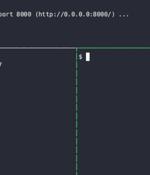Security News

Over the weekend Chinese president Xi Jinping gave a directive to officials to build a Beijing-supervised "Security barrier" around its internet. According to state-sponsored media republished by the government, Xi said it was "Essential to uphold the Party's leadership over the internet sector."

No less than 330000 FortiGate firewalls are still unpatched and vulnerable to CVE-2023-27997, a critical security flaw affecting Fortinet devices that have come under active exploitation in the wild. Cybersecurity firm Bishop Fox, in a report published last week, said that out of nearly 490,000 Fortinet SSL-VPN interfaces exposed on the internet, about 69 percent remain unpatched.

More than 338,000 FortiGate firewalls are still unpatched and vulnerable to CVE-2023-27997, a critical bug Fortinet fixed last month that's being exploited in the wild. Fortinet disclosed the flaw last month and noted that the issue, which it tracks as FG-IR-23-097, "May have been exploited in a limited number of cases and we are working closely with customers to monitor the situation."

Hundreds of thousands of FortiGate firewalls are vulnerable to a critical security issue identified as CVE-2023-27997, almost a month after Fortinet released an update that addresses the problem.CVE-2023-27997 is exploitable and allows an unauthenticated attacker to execute code remotely on vulnerable devices with the SSL VPN interface exposed on the web.

Fortinet has released patches to address a critical security flaw in its FortiGate firewalls that could be abused by a threat actor to achieve remote code execution.The vulnerability, tracked as CVE-2023-27997, is "Reachable pre-authentication, on every SSL VPN appliance," Lexfo Security researcher Charles Fol, who discovered and reported the flaw, said in a tweet over the weekend.

Fortinet has released several versions of FortiOS, the OS/firmware powering its Fortigate firewalls and other devices, without mentioning that they include a fix for CVE-2023-27997, a remote code execution flaw that does not require the attacker to be logged in to exploit it. The vulnerability has been fixed in FortiOS versions 7.2.5, 7.0.12, 6.4.13, 6.2.15 and, apparently also in v6.0.17.

The U.S. Cybersecurity and Infrastructure Security Agency on Monday placed two recently disclosed flaws in Zyxel firewalls to its Known Exploited Vulnerabilities catalog, based on evidence of active exploitation. The vulnerabilities, tracked as CVE-2023-33009 and CVE-2023-33010, are buffer overflow vulnerabilities that could enable an unauthenticated attacker to cause a denial-of-service condition and remote code execution.

Zyxel has published a security advisory containing guidance on protecting firewall and VPN devices from ongoing attacks and detecting signs of exploitation. This warning comes in response to multiple reports of widespread exploitation of the CVE-2023-28771 and the exploitability and severity of CVE-2023-33009 and CVE-2023-33010, all impacting Zyxel VPN and firewall devices.

CVE-2023-28771, the critical command injection vulnerability affecting many Zyxel firewalls, is being actively exploited by a Mirai-like botnet, and has been added to CISA's Known Exploited Vulnerabilities catalog. CVE-2023-28771 is a vulnerability that allows unauthenticated attackers to execute OS commands remotely by sending crafted IKE packets to an affected device.

Hackers are performing widespread exploitation of a critical-severity command injection flaw in Zyxel networking devices, tracked as CVE-2023-28771, to install malware. The flaw, which is present in the default configuration of impacted firewall and VPN devices, can be exploited to perform unauthenticated remote code execution using a specially crafted IKEv2 packet to UDP port 500 on the device.